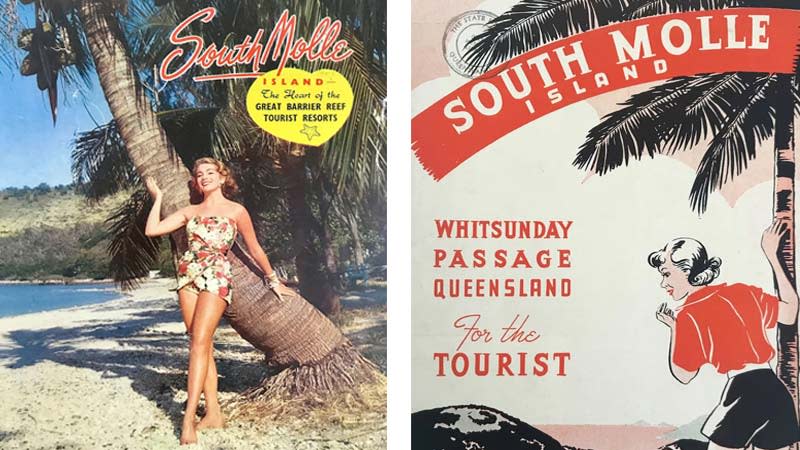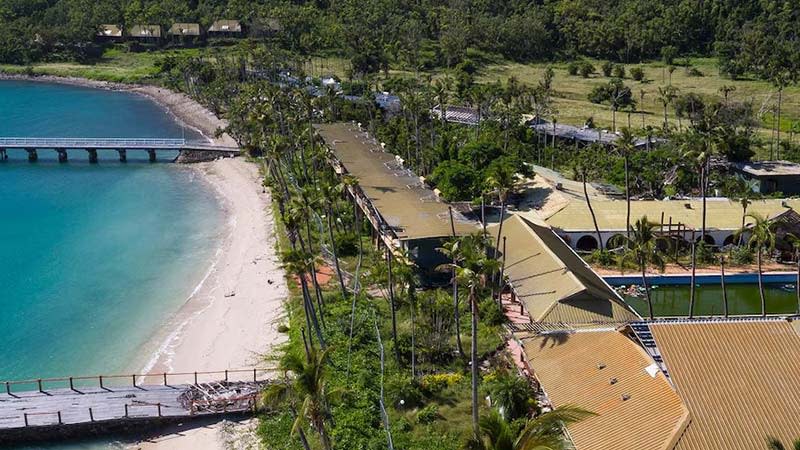South Molle Island on Block as Chinese Owners Exit

North Queensland’s South Molle Island has been listed for sale by the Chinese owners who also control a neighbouring island.
Shanghai-based China Capital Investment Group (CCIG) acquired the island in the Whitsundays for $25 million in 2016. It is now reportedly seeking more than $30 million for the asset.
CCIG also owns Daydream Island Resort, which it acquired for about $30 million in 2015 and has subsequently invested about $86m on upgrades.
HTL Property has been appointed to manage the sale of the 28ha tropical island, about 900km north of Brisbane. Andrew Jackson, Andrew Jolliffe and Paul Nyholt are leading the campaign for the vacant possession property.
The agents said South Molle Island held significant development potential with pristine beachfront locations suitable for luxury resorts and an expansive central parcel within the island’s national park boundaries.
CCIG had invested $10 million in jetty redevelopment, providing access for such development activities, they said.
The island operates under state government conditions, and the lessee is required to maintain tourist accommodation to acceptable standards and always provide transportation services between the mainland and the island.
The property has a hospitality heritage spanning over eight decades.
The island’s first resort was established in 1937—the most recent was the Adventure Island Whitsundays resort, which comprised 188 rooms and amenities including multiple resort pools and a golf course. It was destroyed by Cyclone Debbie in 2017.

Before CCIG’s ownership, the island was acquired by Craig Ross of Koala Adventures in 2001. Ross lived on the island for seven years and sold it in 2016.
It was owned by the Australian airline Ansett in the 1980s.
The island’s pastoral history dates to 1883 when the first lease was granted, and the Bauer family operated a sheep and cattle property on the island from around 1920.
Tourism development began in 1937 with the construction of the first resort, transforming the agricultural island into a holiday destination that would evolve under multiple operators over the following decades.
The Whitsundays region attracts millions of annual visitors drawn to pristine beaches, adventure tourism opportunities and proximity to the Great Barrier Reef.
HTL Property director Paul Nyholt described the area as “an international holiday dream destination” and said the island offers “tremendous growth and unlimited upside potential for a buyer with the vision to further develop the property’s natural beauty”.
South Molle Island is the latest in a series of premium island sales in northern Queensland over recent years, with transactions totalling more than $100 million.
Long, Lizard, Dunk and Hook islands have all changed hands within the past four years.

Notable transactions include Andrew ‘Twiggy’ Forrest’s $42-million purchase of Lizard Island in 2021, tech entrepreneur Mike Cannon-Brookes’ wife, Annie, acquiring Dunk Island for $24 million in 2022, and the purchase of Lindeman Island by Juniper Group founder Shaun Juniper for around $10 million in 2023.
“The sale of South Molle Island represents an exciting opportunity for investors and developers seeking to capitalise upon one of Australia’s most stunning tourist destinations,” HTL Property managing director Andrew Jolliffe said.
The island sale forms part of a broader Whitsundays transformation, with nearby Hook Island progressing major development plans under Sydney hotelier Glenn Piper’s Epochal Hotels, which filed a $40-million cyclone-proof resort proposal this year.
The ultra-exclusive Elysian Retreat on Long Island is the Great Barrier Reef’s first 100 per cent solar-powered resort, with just 10 oceanfront villas accommodating a maximum of 20 adult guests in an all-inclusive eco-luxury experience.
Jackson said these projects showed diverse market approaches from high-density resort complexes exceeding 150 rooms to boutique experiences with as few as 10 rooms.
The South Molle Island campaign is targeting investors, hoteliers and developers seeking wholly private tropical Australian island ownership within an established international tourism destination.














